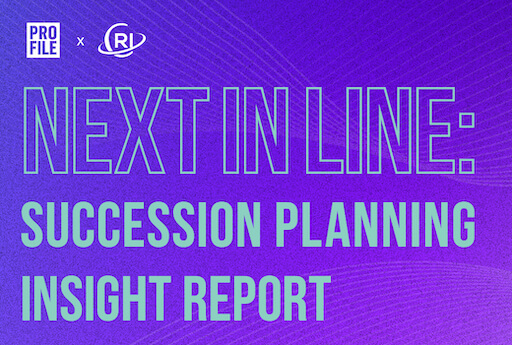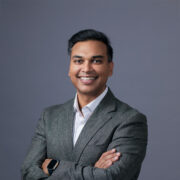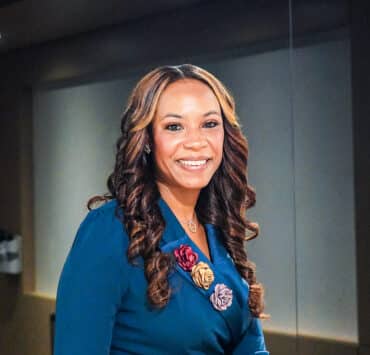|
Getting your Trinity Audio player ready...
|
One of the top leadership practices Norman Osumi follows may seem simple, but it’s incredibly powerful: smiling. Lots and lots of smiling. It’s an act that matches his naturally kind disposition, and one that he hopes counteracts any misconceptions people may get from his self-described “serious face.”
“I consciously make an effort to smile more,” he says. “It tends to put people at ease and make them feel comfortable approaching me.”
It’s just one of many ways the extremely friendly senior vice president and chief accounting officer of the global technology company LivePerson works to make his team feel like they can go to him. He also has frequent personal conversations with his staff, doing his best to understand more about their mental, emotional, physical, and spiritual state. The latter two can be hard to decipher, he says, but understanding where their hearts and minds are at is very important to him.
“It’s a really important part of building trust and connecting with my staff and colleagues,” he says.
Taking the time to develop those relationships leads to more candid communication and increased efficiency, both of which are necessary to keep the finance department of a company that made half a billion dollars in revenue in 2021 on track.
A big initiative at present is moving LivePerson over to the cloud. There’s a lot to consider when it comes to reliance on third parties in that way versus keeping the company’s IT infrastructure in-house. Going to the cloud means a provider would help manage activities around key resources. The jury is still out regarding which path will prove to be the best, Osumi says, so they will have to see how the migration to the cloud plays out.
“This is business, but that doesn’t have to mean it has to be cold and impersonal. It can be warm and inviting.”
Norman Osumi
It all reminds him of one of his favorite quotes from the infamous baseball player Yogi Berra: “In theory, there is no difference between theory and practice. In practice, there is,” Berra said.
In practice, Osumi is always tracking the numbers, overseeing the finance department, assessing internal efficiencies, and searching for ways to automate and improve processes. All the while, he is looking to help manage the stress of his employees.
“I try to gauge the team’s bandwidth and balance the load as best as possible,” he says.
He must also do the same for himself. This has been especially important since April 2019, when Osumi was suffering from severe congestive heart failure and was admitted to the hospital. He was hooked up to machines that kept his heart functioning properly and had no idea what the future would look like. Transplant patients can wait months or even years on the transplant list, but just four days later, Osumi was in an operating room about to receive a donor heart.
“I remember when I was about to be pumped with anesthesia, I thought to myself, ‘I may not wake up here. I may die right here, and I may never see another day,’” he says.
Thankfully, a few hours later, Osumi came to in the recovery room feeling grateful for his “second chance at life.” Each day, he does his best to not let that chance be lost. He is intent on doing the best he can, being the best person he can be, and focusing on the positive.
“I consciously make an effort to smile more. It tends to put people at ease and make them feel comfortable approaching me.”
Norman Osumi
This positive state of mind is a good outlook to have since the doctor’s orders include maintaining a healthy diet, exercising regularly, and minimizing stress. Given the stress-reducing effects of smiling, it is good that it is already integrated into his routine.
Osumi has also added breathing exercises to his schedule. He regularly takes three minutes to do some very deep breathing, breathing in for fifteen seconds, holding it for fifteen, and then breathing out for fifteen. That, unlike smiling, is not as easy as you might think.
In the course of nearly forty years in the accounting and finance industry, Osumi has learned a lot. He has learned that your twenties should be a time of apprenticeship and learning and your thirties should be a time of taking on as many projects as you can and applying that knowledge. Once you reach a leadership level, a lot should be about people skills: developing your team, practicing empathy and patience, and of course, developing a culture of kindness.
“This is business, but that doesn’t have to mean it has to be cold and impersonal,” he says. “It can be warm and inviting.”
Even the not-so-fun parts of his job, like talking to employees about problems, can be done in a warm way—“focus on the problem, not the individual”—and is a task that Osumi looks at with positivity. That’s been especially true since he received his new heart. “The fact that I’m alive and can have interactions with people and help solve problems as a human being having been given that second chance . . . I just feel so grateful for that,” he says.
In an evolving landscape, businesses succeed by making better decisions, faster. At KPMG, we bring the insight and capability needed to enable your success. Drawing from deep industry and functional expertise, we use advanced data and analytics to unlock new sources of value and drive sustainable growth. Whether it’s navigating complex transactions, improving business performance or reshaping your strategy, we will work with you to rapidly realize the vision for your organization. With KPMG, you have the insight to turn opportunities into transformative and real results.















